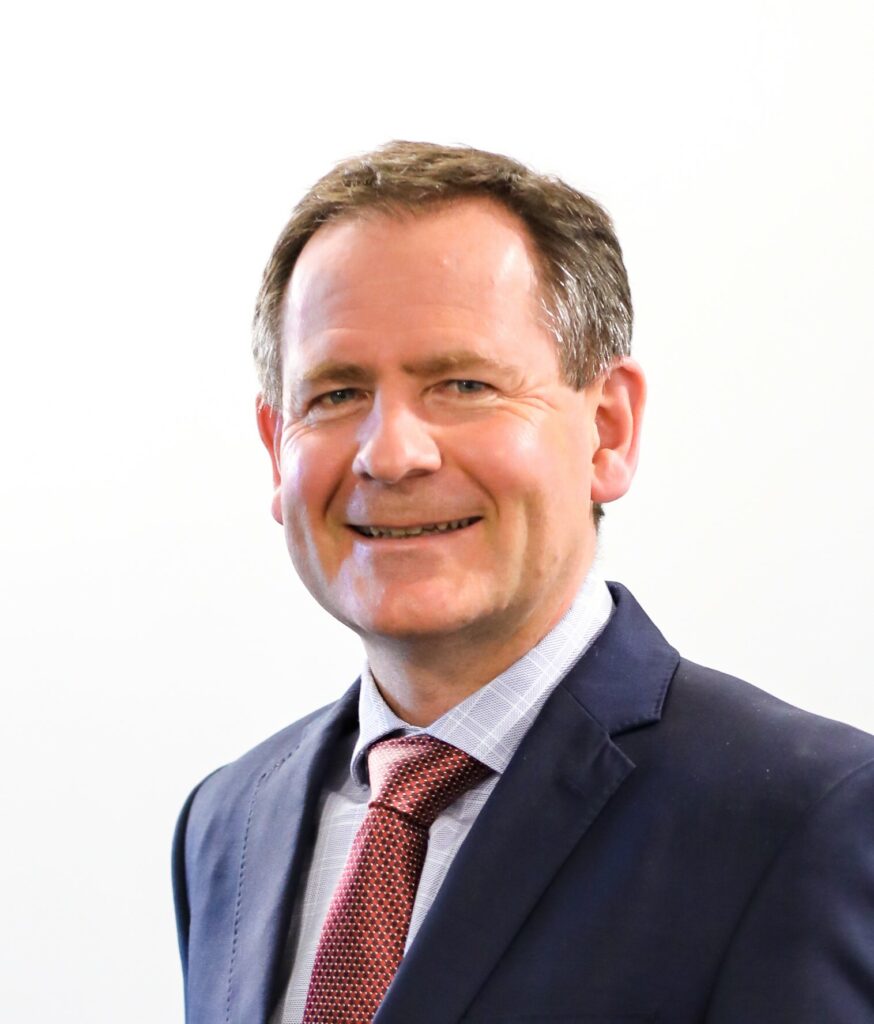Job Title
Chief Executive Officer, Solent NHS Trust
Where are you based?
Mostly at our offices in Southampton, but a lot of the time I am out and about meeting our people and patients around the region.
Is your role clinical or non-clinical?
Non-clinical
Tell us about your job
As Chief Executive, my role is to work closely with my executive team and our Board on charting the direction of the organisation, which employs 4,500 staff, and working with our operational teams to deliver the very best care for our patients.
What has been your path to where you are today?
I had a very unusual path to the NHS, which began with being made redundant in 2009. Early in my career I joined finance firm KPMG, where I eventually led a team of 45 people. During this time, I qualified as a chartered accountant. After 15 years at KPMG, I decided it wasn’t what I wanted to do long-term, so I joined B&Q, working as Financial Controller in its Southampton head office. In 2009, following the global financial crash, I and a number of colleagues were made redundant. On the day we were told, we were allowed to go home, so I did. I went for a 10-mile run, then logged on to a jobs website and saw a role as Head of Finance for the community arm of what was then Hampshire Primary Care Trust. The role really resonated with me; I loved that it was really people-focused, so I applied that afternoon. I didn’t have precisely what they wanted but it was sufficient enough and I explained how much I liked the look of the role. I got the job and spent four years there.
At the end of my first year in the NHS, my organisation underwent a reorganisation to what would become part of Southern Health Trust. I became Finance Director and then held senior finance roles in the NHS for a number of years, including at NHS England. In 2015, I became Chief Finance Officer for Solent NHS Trust, later moving to Acting Chief Executive Officer during the pandemic, and then Chief Executive Officer later in 2021.
What’s your day to day like?
Some elements are very structured and planned – for example, I may be attending Board meetings or meetings with our senior leadership team or heads of partner trusts. There are also more spontaneous elements, such as if a Critical Incident is called at a hospital, which is where the emergency department receives exceptional demand and has reached maximum capacity. In those scenarios, I’ll be working with senior leadership of different trusts to agree what action we will take to get through that period whilst delivering the very best care we can.
What are some challenges?
We have a term we refer to, a broad managerial term called VUCA, which stands for volatile, uncertain, complex and ambiguous – describing external elements that can present challenges to organisations. These are challenging times, with competing pressures and limited resources. Our people are our biggest and best resource, and it’s about using their time and effort wisely. Through challenging times, it’s our people who make it better. We are led by our values, and that is key.
What do you love about your job?
Without a doubt it’s working with people. When we have discussions together, different viewpoints emerge, but coming to an agreed plan and seeing how that takes shape for the patient is so rewarding. One my favourite parts of the job is presenting our people with long service awards. Some of our people have been with us for 25 years, some as long as 40 years. The pride and joy they take in their work gives me huge satisfaction. Our staff awards events are similarly really rewarding.
What’s your top tip for developing a career in the NHS?
Take your opportunities – don’t wait for things for things to happen. Apprenticeships are a great way in too. I am passionate about apprenticeships and was recently approached by one of our people who told me she was in her final year of a nursing apprenticeship and had pursued that path after seeing me recommending apprenticeships at an event. That was a really lovely thing to hear.
What would you say to a young person thinking of joining the NHS?
It’s a challenging career but a really fulfilling one. It’s a people organisation. At one point, everyone one will experience the NHS. The way we treat and care for people is so important. It doesn’t matter if you work in finance, estates, HR – we’re all one team and we all have a role to play.

